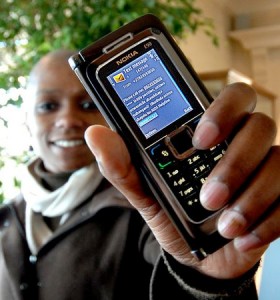At last month's World Congress 3rd Annual Leadership Summit on mHealth, Kate Canales, creative director of Frog Design, spoke about what mHealth programs can learn from the developing world, reports SmartPlanet. Frog Design is working on a number of mHealth initiatives in developing countries. Canales' four lessons include:
1. Get comfortable with non-clinical sources. Information shared between patients is the most valuable information in healthcare, Canales said. People are increasingly sharing health information with each other, despite physician's reservations about the practice, and mobile technology is increasingly an enabler of this.
2. Build tools to support and extend existing “human infrastructure,” not replace it. The gaps in healthcare and self-care are filled with humans, not technology. Technology just helps. Frog Design collaborated with a community member who owned a mobile phone, who then reminded other people of when they were due for vaccinations, check-ups and other preventive visits. A new app called PatientTouch echoes the same idea; the app lets nurses customize the sorts of information that patients receive.
3. Find systems that are working to support people, then build on them. Successful initiatives usually ride on existing systems. Canales cited an organization called Prostate Net, which educates and encourages men (especially African American men) to get screened. Barbershops are one community place that the organization found to be most helpful in getting men screened.
4. Start small and learn your way to the right solutions through a deep understanding of patient and user context. Canales described an initiative in South Africa to encourage women to travel to birthing clinics by giving them a “mommy pack” of diapers and other care products started strong but then began to decline. The project leaders found that incentives (the free diapers) weren’t strong enough to offset the hour long walk the pregnant women had to make to receive them. They took this knowledge and used it in development of a mobile app that encourages HIV testing among men in South Africa, stressing anonymity in the testing as a strong incentive.
Read SmartPlanet'a coverage of Canales' talk here.

















